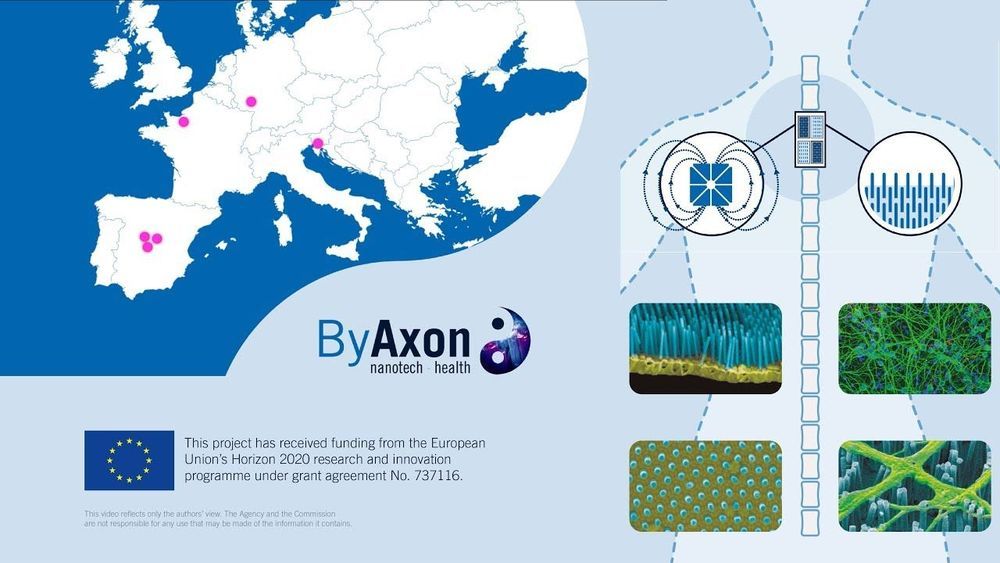According to the World Health Organisation, up to a half-million people around the world suffer a spinal cord injury each year. Often caused by road traffic crashes, accidents or violence, the loss of motor control or paralysis significantly impacts quality of life and requires years of treatment and care. Spinal cord injury is also associated with lower rates of school enrollment and economic participation, and carries substantial individual and societal costs.
Current methods for spinal cord injury treatment involve cumbersome brain-machine interfaces, with many cables linking the patient and a computer to restore limited motor functions. Other methods to map brain activity, such as magnetoencephalography, require very large machinery and particularly low-temperature working conditions.
To improve the quality of life of those suffering a spinal cord injury, ByAxon is bringing together a consortium of researchers from across Europe (Spain, Italy, France and Germany) to devise a new generation of spinal cord treatments. The four-year project started in January 2017 and is seeking to create implants that restore sensory functions.
